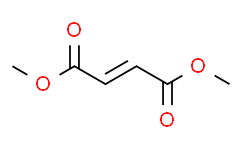Dimethyl fumarate (DMF; 20-200?μM; 24 hours) treatment dose-dependently reduces the viability of SGC-7901, HT29, HCT116 and CT26 cancer cells.
Dimethyl fumarate (DMF; 100?μM; 3-24 hours) significantly activates JNK, p38 and ERK in CT26 cells.
Dimethyl fumarate induces necroptosis in colon cancer cells and the mechanism involves GSH depletion, an increase in ROS and activation of MAPKs-mediated signalling.
Dimethyl fumarate inhibits dendritic cell (DC) maturation by reducing inflammatory cytokine production (IL-12 and IL-6) and the expression of MHC class II, CD80, and CD86. Dimethyl fumarate impairs NF-κB signaling via reduced p65 nuclear translocalization and phosphorylation. Dimethyl fumarate inhibits maturation of DCs and subsequently Th1 and Th17 cell differentiation by suppression of both NF-κB and ERK1/2-MSK1 signaling.
Dimethyl fumarate (DMF), an immune modulator and inducer of the antioxidant response, suppresses HIV replication and neurotoxin release.
Medlife has not independently confirmed the accuracy of these methods. They are for reference only.
Cell Viability Assay
| Cell Line: |
SGC-7901, HT29, HCT116 and CT26 cells
|
| Concentration: |
20 μM, 50 μM, 100 μM, 200?μM
|
| Incubation Time: |
24 hours |
| Result: |
Reduced cell viability in SGC-7901, HT29, HCT116 and CT26 cancer cells. |
Western Blot Analysis
| Cell Line: |
CT26 cancer cells
|
| Concentration: |
100 μM
|
| Incubation Time: |
3 hours, 6 hours, 12 hours, 24 hours |
| Result: |
Significantly activated JNK, p38 and ERK in CT26 cells after treatment from 3 to 24?h. |



 扫码关注公众号
扫码关注公众号